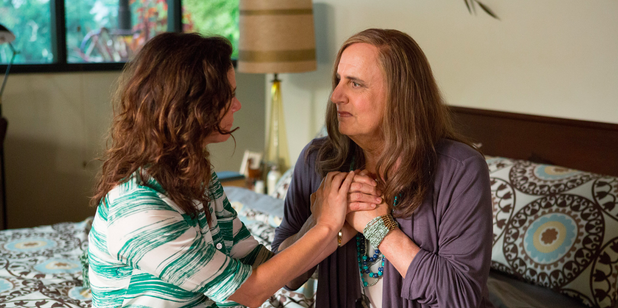It’s Clear That You Should Watch Transparent
Season 1 of Transparent, which was released in its entirety on September 26, 2014 on Amazon Prime TV, might very well be the best new show of 2014. I spent the entire first weekend of March binge watching the first season, which consists of 10 digestible half-hour episodes.
The show follows a man, Mort (played by Jeffry Tambor), in his early 70s who has decided to come out to the world as transgender, publicly calling himself Maura. His secret sets off a domino effect, and all the other Pfefferman family secrets start to spill out. His three children are played poignantly by Gaby Hoffman, Amy Landecker and Jay Duplass, and his ex-wife Shelly is portrayed phenomenally by Judith Light.
The show is partially based on the life of creator Jill Soloway, whose father also came out to her as being transgender in 2011. Her older sister, Faith Soloway, sometimes collaborated with her on episodes. According to an interview with Elle Magazine, “There was no ‘before-and-after moment of the big reveal, like a reality show,’ she says. Instead, she and her older sister, Faith, who is now a writer on Transparent, each got a phone call and were left to begin the process of re-getting to know the person who’d raised them, just as that person was for the first time getting to know herself as a woman.”
Being transgender is a subject that can be a little bit confusing to some of those who aren’t. In writing my review, I actually wasn’t sure about what pronouns to use to describe Maura at first. It’s important that we understand that every person has a sex (a gender that is assigned at birth), a gender identity (one’s gender internally, which does not match the sex in the case of transgender people), a gender expression (external indicators of the gender one identifies with, i.e. clothing, and pronouns), and a sexual orientation (one’s emotional, physical, and romantic attraction to others, i.e. straight, gay, bisexual). In the case of Maura, though the sex is male, her gender identity is female, and her gender expression becomes female at the time in her life that the show captures.
While the subject matter is intense and the show can be very graphic, creator Jill Soloway geniusly saturates it with humor. The youngest daughter Ali starts calling Maura Moppa, “like momma and poppa.”
The show also provides a witty critique of life in a modern, semi-religious, Jewish family. When eating a messy barbeque meal together, Maura tells her children that “We come from Shtetl People” as an excuse to wait until after the meal to wipe her mouth. Soloway too came from a Jewish family, and she admits that she never felt like a Jew, but that her spirituality is all about questioning things in the world, another theme throughout the show.
Transparent is a very important show, for many reasons. It sympathises with transgender people, It validates a journey of finding your gender identity and expressing it, and it stresses the value of family. It and Orange is The New Black are two of the only popular shows with important transgender characters.
My favorite line from the season is from the second episode. When Maura’s oldest daughter finds out her secret, she asks, “Are you saying that you’re gonna start dressing up like a lady all the time?” And Maura shakes her head, smiles, and replies, “No, honey, all my life, my whole life I’ve been dressing up… like a man.” (scene pictured above)
The world is changing, and we can hope that life imitates art, in that Transparent will inspire more tolerance, understanding, and sympathy for transgender people.


